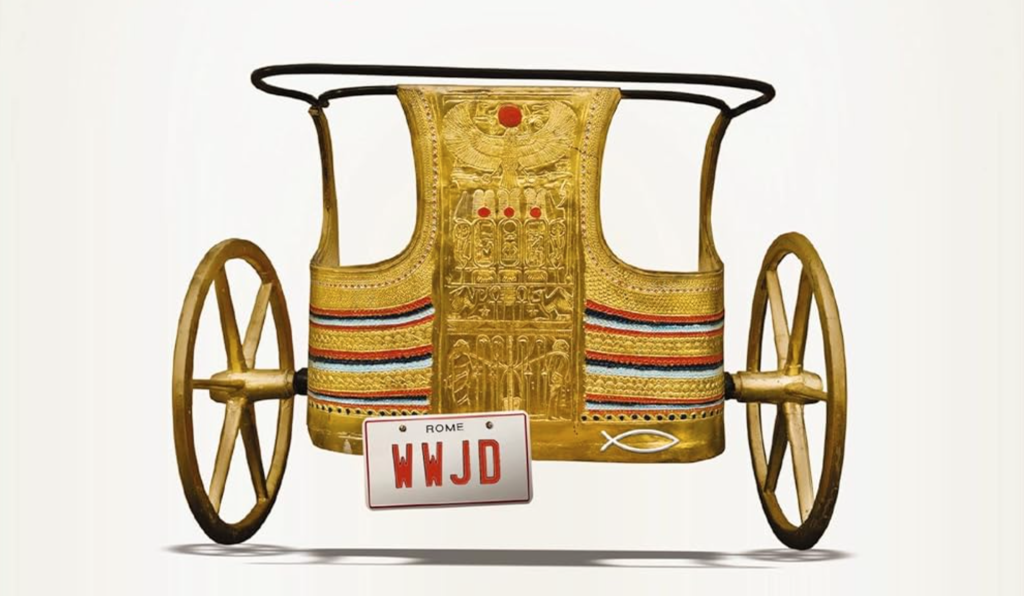

My book Cultural Christians in the Early Church has been out in the big wide world for two weeks. Since I have now received several versions of the same question about the book, I thought it was worth writing about.
My argument in this book is that while Christianity has always been a call for believers to follow the gospel and live counter-culturally, various cultural sins have also always had a way of creeping into believers’ lives, sometimes unintentionally. In the story I tell of cultural Christians as sinners, therefore, cultural Christianity comes across as something problematic for individuals and their society alike.
The question that several have asked me, nevertheless, is: what is wrong with cultural Christianity and such manifestations of it as Christian nationalism? Isn’t cultural Christianity—a Christendom that is surface level, skin-deep—still better than no trace of Christian values at all in a society?
Indeed, over the past few years, a number of thoughtful conservatives have advocated for cultural Christianity as something good, or at least better than what we’ve got going on now. In an essay for The American Conservative in 2021, Sohrab Ahmari joined forces with Gladden Pippin and Chad Pecknold to make the case “In Defense of Cultural Christianity,” arguing that Christianity was always meant to be a cultural Christianity—a religion of the state, and one in which not everyone was fully and genuinely converted. Still, they argue, this kind of skin-deep Christianity is still better than nothing, and the proof is in the proverbial (Hungarian) pudding: “Christian nations take care of the sick and the poor, preserve life from conception until natural death, incarnate their faith in holidays and festivals, and inspire public life with hope for eternity. Because of that, traditional Christianity stands to regain importance whenever and wherever liberalism falters.”
This was in 2021, and I would like to hope that perhaps the idealization of Hungary as a state that has been doing cultural Christianity well is on the wane (although 2023 has been a good PR year for dictators). I particularly recommend Miles Smith’s essay earlier this year on the problems of Christianity in Hungary.
And yet, the overall argument above about the merits of Christian nations certainly stems from a logical place: we all should care about preserving life, taking care of the sick and the poor, and so on. So what is the problem with this kind of argument? My concern is that thinkers who have made this argument (e.g., Patrick Deneen and Rod Dreher), while Christians, have approached the conversation about cultural Christianity from a primarily practical rather than theological standpoint. They have consistently thought in more pragmatic terms than I do about what a good state might look like. The question about which they have been writing all along could perhaps, at the risk of over-simplifying, be summed up as follows: what might make for a functional society (and, especially, functional political culture), and how might we get there?
Of course, this is a great question to ask in our tumultuous present. Our society is unwell—on this much (and, perhaps, this much alone, as it seems sometimes!), we can all agree, regardless of political or theological views. And so, the temptation to settle for the pursuit of cultural Christianity makes a certain degree of sense in light of the present chaos: if only we could infuse our society with more Christian cultural values—especially with regard to the preciousness of all human life because made in God’s image—it would be a healthier world. How could this be wrong?
The problem is that this argument is too concerned with the kingdoms of this earth, rather than with care of souls. Any conversation that espouses cultural Christianity over genuine conversion settles for a pale shadow of the gospel rather than the real thing.
In other words, if we settle for espousing merely a cultural Christianity—a society where people might act as Christians, embracing residual values of Christendom but without real faith, belief, and genuine conversion—is that this does not lead to eternal life. Theologically, Jesus’s promises include care for this earth, but they were, first and foremost, concerned with eternity, with salvation, with the glorious reward of a faithful believer in God’s presence.
I worry, therefore, that those who settle for just a cultural Christianity are falling for the same misunderstanding today that too many Jews in the time of Jesus had about the Messiah: they were expecting an earthly king, one who would fix the hot mess of a world of Roman rule over them. They were, as a result, blind to the sight of the true Messiah who came to serve and, ultimately, be crucified.
But there is one more related conundrum to note. Considering the fallen nature of man, I am not so sure that cultural Christianity could ever fully achieve the goods that some who defend it seem to think it capable of. We only act, after all, according to our genuine full-hearted convictions. And a lack of genuine belief in the gospel leads to a lack of acting in accordance with its principles. Indeed, the history of previous culturally Christian kingdoms is rather checkered, to say the least, when it comes to the respect of human life, care of the poor, and so on.
As so, this is why, when I talk about cultural Christianity in my book, I talk in the same (written) breath about cultural sins and the need for repentance and sanctification as part of the life of every Christian. If we focus on genuine conversion in our lives, and carefully examine the areas of our lives where the culture around is calling us away from the gospel rather than to it, we will be more oriented towards the kingdom that is not of this world. But in the process, we will still change our families and communities for the better. For even a mustard seed has power.
This is really good.
Two other considerations, about power, as expressed in quotes:
“It is not in the nature of politics that the best men should be elected. The best men do not want to govern their fellowmen.” George MacDonald
“Our dreams of bringing the whole of human history under the control of the human will are ironically refuted by the fact that no group of idealists can easily move the pattern of history toward the desired goal of peace and justice. The recalcitrant forces in the historical drama have a power and persistence beyond our reckoning. … [This leads to idealists in government] who are ready to cover every ambiguity of good and evil in our actions by the frantic insistence that any measure taken in a good cause must be unequivocally virtuous.” Reinhold Niebuhr
Together, these observations remind us that the situation on the ground will not much resemble the sweet dreams of the philosophers. The loveliest of imaginings get twisted and soiled in their implementation. Perhaps because of their zeal, Christians often make a terrific hash of things. Secularists can, too. But the actions of the secularist don’t bring the cause of Christ into disrepute.
“Christianity was always meant to be a cultural Christianity—a religion of the state, and one in which not everyone was fully and genuinely converted.” Huh? Given that it was *centuries* before Christianity became a religion of the state–and no one in the early church understood it as such–that’s bizarrely ahistorical.